How a pastor’s death became a catalyst for church growth and bold faith in central India.
Shankar Yalam loved working the soil. Wherever he travelled as a pastor and evangelist, he would look for new seeds or plants to bring back to his well-tended garden. He relished finding unusual plant varieties and welcomed the challenge of coaxing them to take root and grow.
Planting and growing was a life theme for Pastor Shankar, who chose for himself the name ‘Timothy’ after becoming a Christian. Like his namesake, he worked tirelessly to teach others about Christ, encourage them in their faith and help meet their needs.
“He had a great heart for the oppressed and persecuted,” his wife, Kamla, said.
While his care for other Christians and service to his community in central India won him admiration and respect from many, it also made him a target for those opposed to the Christian faith, including Hindu nationalists, Maoist insurgents known as Naxalites and local tribal groups who worship nature spirits. Threats were common, but Shankar steadfastly continued to share the gospel and lead churches throughout the area.
Called into ministry
Shankar grew up as a Hindu and earned his living in agriculture, alternating between working his own fields and travelling to do seasonal work in other areas. In 2002, he began to experience severe stomach pain and unsuccessfully sought relief through visits to many doctors. Finally, a neighbour mentioned that people had been healed after receiving prayer from a Christian pastor in a nearby village. Shankar and Kamla decided to visit the pastor, reasoning they had nothing to lose.
After the pastor prayed for him Shankar’s pain subsided and the young couple returned home. Shankar then went back to his work in the fields, and he and Kamla soon left for seasonal work in another state. Although Shankar had experienced relief from his pain, he did not choose to become a Christian.
Instead, he began drinking heavily and spending all his earnings on alcohol and gambling. After a few months of this behaviour, his pain returned. Remembering the relief he had experienced through the pastor’s prayer, he and Kamla began asking co-workers where they might find a Christian pastor. When they were told about a church in another town, they went there that night to see the pastor.
Noticing that Shankar was still intoxicated, the pastor refused to pray with him at the time. But seeing that Shankar was in great pain and that Kamla was in deep distress, he brought them a mat and invited them to rest in the church until morning. Around 4am, he returned to speak with Kamla.
“Do you want your husband to be really healed?” the pastor asked. “You ought to make a commitment to follow Jesus.”
When Shankar awoke, the pastor and his assistant prayed with the couple, and Shankar’s pain was completely gone by sunrise. This time, after the pastor shared the gospel with them, both Shankar and Kamla placed their faith in Christ.
“From that moment,” Kamla said, “we both decided to serve Jesus and started evangelising in different villages.” Within months, the couple had started house churches in several locations, and Shankar almost immediately faced opposition. Local Hindu leaders confronted him, urging Shankar to stop his evangelism and convert back to Hinduism. Naxalite guerrillas, angry that his evangelism was robbing them of followers, also opposed him. In one incident, villagers tore Shankar’s Bible from his hands and burned it, threatening him with the same treatment if he didn’t stop his work.
Then, one night, Shankar had a dream that someone handed him a piece of paper with a passage from Isaiah 41 written on it. He read the passage in his Bible the next morning, but as a new Christian, he was puzzled by the dream and meaning of the Scripture. When he eventually shared it with the pastor who had led him to Christ, the man encouraged him to see the dream as a calling to ministry. He reminded Shankar, however, that persecution comes with being a faithful follower of Christ. Accepting the risk, Shankar decided to seek formal training to become an ordained pastor.
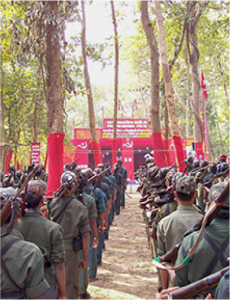
Faithful, Fruitful, Fearless
Shankar loved his ministry work. He rode a bicycle to many villages — often more than 15km each way — to preach and teach, establishing and nurturing a large network of house churches.
Having learned early the cost of following Christ, he diligently taught the members of these churches about persecution. He urged them to stand firm and remain faithful witnesses for Christ in their villages.
“Shankar dedicated his life for the work of the ministry,” Kamla said. “He was a good student of Scripture and had a disciplined Bible study life. He used to try to meet with other pastors whenever he would travel and try to learn more about the Word of God from them.”
Shankar also had a reputation for defending Christians facing persecution. “He was outspoken for the rights of the Christian community,” Kamla said. “He would educate other pastors about this and encourage them to continue ministry without fear.”
Recounting how his father helped Christians in times of trouble, Shankar’s older son, Gopal, said he frequently visited police about Christian persecution. In November 2021, this advocacy work led to a series of meetings before the local village council. Hindu nationalists and tribal leaders demanded that local Christians return to their first religion.
Shankar defended the Christians’ right to choose their own faith. After he answered the demands of the challengers for hours, they eventually abandoned their efforts.
Gopal believes those who led the opposition are the ones who later plotted his father’s murder. “These Hindu leaders gave wrong information about my father, claiming he was a police informant and a spy,” he said. “They said he was collecting information about the activities of the Naxalite group and turning villagers against them.”
The Naxalites, who have lost influence in much of India, still have a strong presence in the state where Shankar planted churches. They routinely terrorise poor communities to ensure support of the Naxalite cause, and they suppress opposition with violence, often targeting Christian pastors. Even Hindu nationalist groups, who are opposed to the Naxalite cause, encourage the Naxalites’ persecution of Christians to serve their own goal of creating a purely Hindu culture in India.
In early 2022, a leaflet appeared in the village, nailed to fence posts and littering the roadside. It named 22 Christians who were on the Naxalites’ ‘Most Wanted’ list, and Shankar Yalam was number two.
Being one of the Naxalites’ most wanted didn’t keep Shankar from his work, however. He told his family and his congregation that he expected one day to be attacked because of his commitment to gospel ministry. But he also told them about the hope he had in Christ.
“He always said that we are Christ’s witnesses, and the day we are persecuted we will become stronger witnesses,” Kamla said.
“He said people around us will know why we are persecuted, and this may cause people to search for Jesus.”
With the Hindu Holi festival approaching, the conspirators saw their opportunity. To ensure that Shankar’s neighbours wouldn’t be around to witness an attack, they moved the pre-Holi festival of Holika Dahan to a location away from the village. Holika Dahan involves loud music, dancing and the burning of demonic images to celebrate the victory of good over evil.
On 17 March 2022, while eating dinner with his family, Shankar heard someone calling loudly from the open gate in front of the family home. As he walked towards the gate, with his daughter-in-law following behind, six masked men entered the courtyard shouting insults against his Christian faith. They struck Shankar in the face, bound his arms behind his back and forced him to kneel.
After one attacker slashed him across the back of the neck with a knife, another fired two shots into his chest with a handgun. The masked men then began to run away, but one attacker returned
a minute later and stabbed the prostrate pastor in the heart. Forced at gunpoint to watch the traumatic scene, Shankar’s daughter-in-law fainted. Kamla rushed out of the house and held her husband’s head on her lap as he whispered a final prayer.
The attack was over in minutes, taking the life of a beloved husband, father, grandfather and pastor.
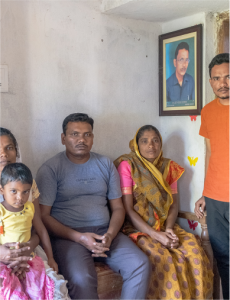
Growing in Grace
The next day, local Christians turned out en masse to pay their respects to Pastor Shankar. More than a thousand people attended the burial, joining boldly in public worship and prayer. Amid her deep grief, Kamla gave testimony about the power of staying committed to Christ in the face of suffering.
“As believers, we all have to carry a cross,” she said, “but after some time, we will see because of carrying this cross that many people will come to know Jesus and worship Him.” She said Hebrews 10:39 — “But we are not of those who draw back to perdition but of those who believe to the saving of the soul.” — has sustained her through this difficult time.
While Shankar’s family still mourns and his daughter-in-law continues to recover from witnessing his murder, the testimony of his life inspires them in faith and in their ability to forgive.
Shankar’s younger son, Pawan, had already decided to pursue law studies because of his father’s commitment to justice, and now his father’s teaching about forgiveness is giving him strength to forgive the murderers. Pawan’s older brother, Gopal, has sensed God’s call to take up his father’s work and continue proclaiming the gospel and growing the church.
“I had an average Christian life,” Gopal said, “but after the death of my father, my relationship with God has become more intimate. I feel more the presence of God in my personal life.”
Gopal considered moving the family to a safer area, but the loving care his father had taken in planting churches ultimately persuaded him to stay. “I could go anywhere and live a good and safe life,” he said, “but by doing so no one will remember us like they will remember my father. If I remain here in such a challenging place, I will be able to bring many more into the kingdom, and when I am gone from this world, I will have a legacy like that of my father.”
Front-line workers helped provide the family with food for several months and continue to minister to their spiritual and emotional needs. The outpouring of love the family has received from both the local and global body of Christ has served not only as an encouragement to the family but also as a testimony to the community around them. “The Lord’s continued provision gives the family fresh hope,” Kamla said.
The congregations that Pastor Shankar led have remained united and have grown since his murder. Kamla longs for all nearby villagers to hear the gospel and experience its transforming power. She asks for prayer that the churches her husband planted and nurtured will continue to grow and will not respond in fear if they suffer severe persecution.
“Do not turn back when you must face persecution,” she said. “During the time of persecution, you will be very close to God. Persecution and opposition may come in many forms, but never turn from Jesus.”
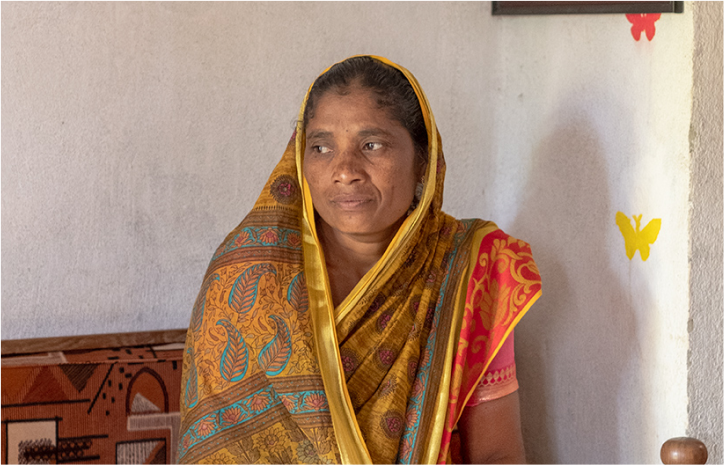
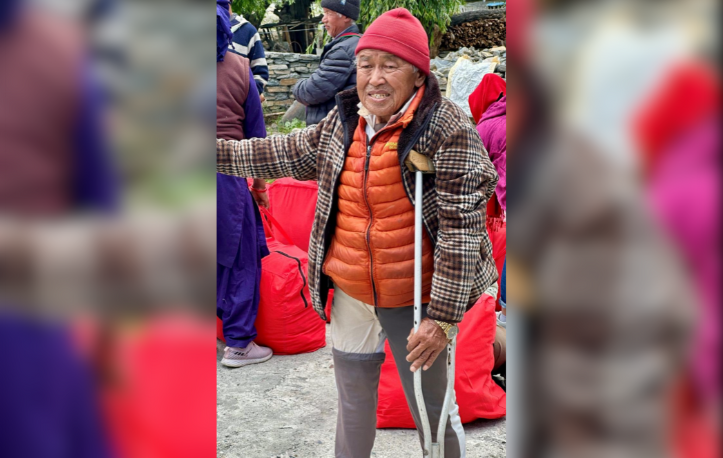
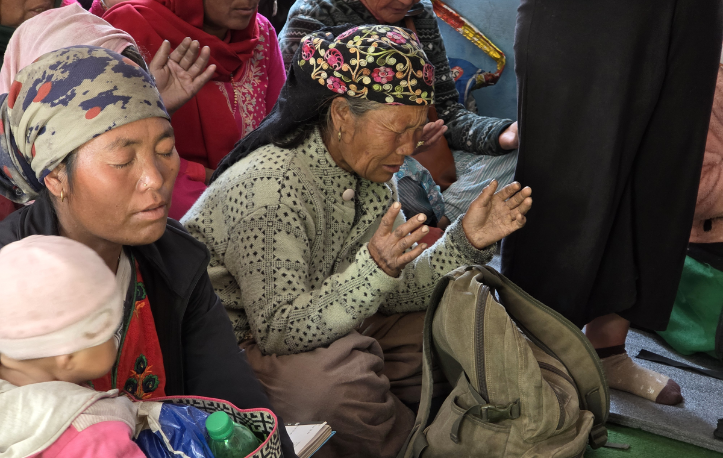
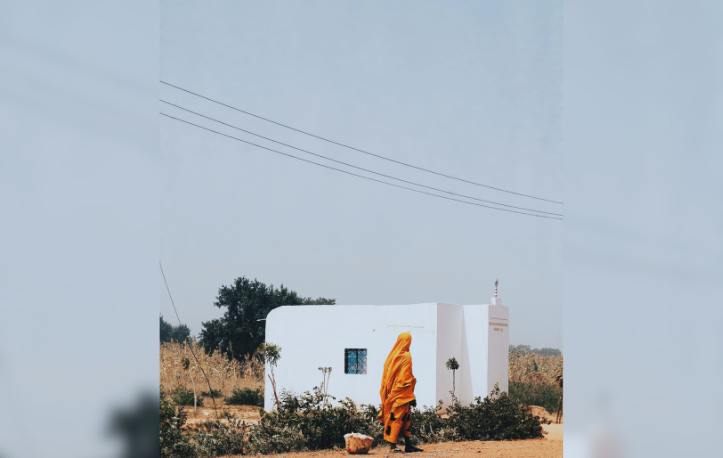
Submit a Prayer